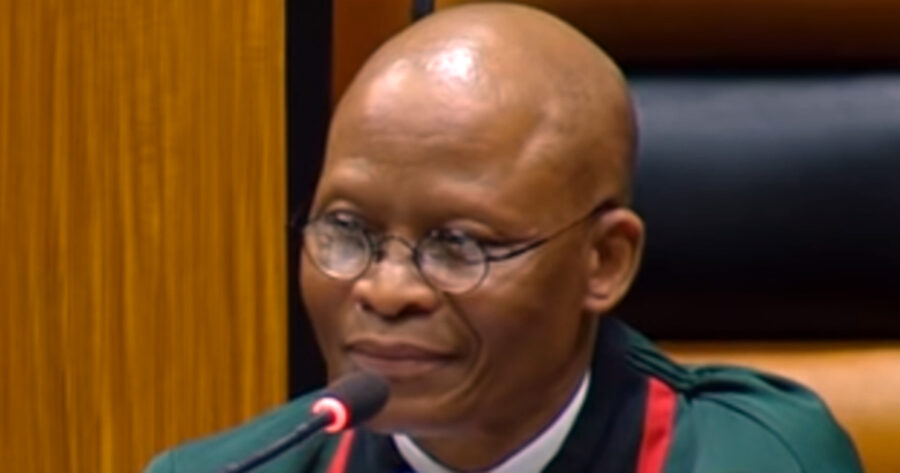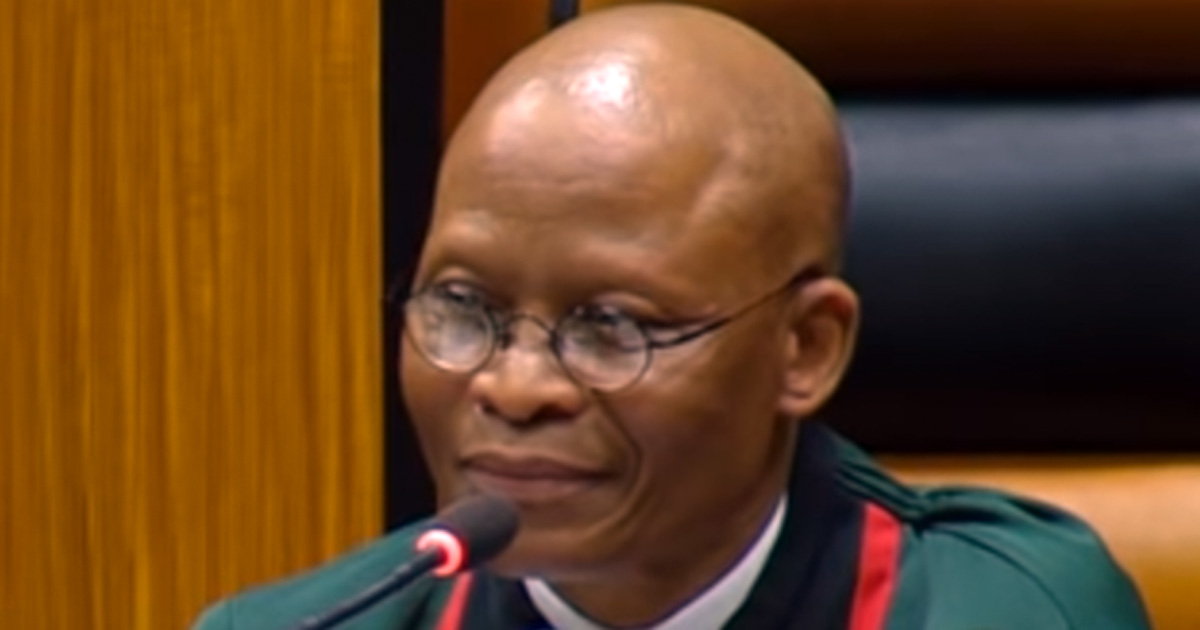
Desperate Message from Senior Judge Shows SA Court System Breaking Down
The wheels of justice are grinding slowly at one of South Africa’s most important courts. The Pretoria High Court (or Gauteng Division as it is also known), has its home in the administrative capital of the country and jurisdiction-wise hears most cases involving legal challenges to government, many of which are deemed urgent. However, according […]

The wheels of justice are grinding slowly at one of South Africa’s most important courts.
The Pretoria High Court (or Gauteng Division as it is also known), has its home in the administrative capital of the country and jurisdiction-wise hears most cases involving legal challenges to government, many of which are deemed urgent.
However, according to a WhatsApp message sent by a senior judge at the court to colleagues, the situation is dire because of a collapse of infrastructure.
The court – and apparently most courts around the country – have not had email access after a massive system failure on 21 September, which has yet to be fixed. Internet access is especially important for the courts during the Covid-19 pandemic because much of the work is being done online, including many hearings.
While the Pretoria court has had access to wifi over the lockdown period it is presently not working. Others, including Durban and Pietermaritzburg, still do not, and judges have to use their personal accounts.
In a message sent to colleagues this week, the judge said: “Just sharing frustrations at court despite proactive attempts at many meetings to ensure that this week we will function, even without emails.”
She said in the civil section, three clerks were using private email and internet, but two couldn’t.
Many of the registrar’s computers had been corrupted so they could not work, even if there was wifi.
Private contractors engaged to manage technology had left the building and “their contract will not be renewed”. The contractors’ role is to manage Case Lines — the court’s online document management system — and enable virtual meetings. The Case Lines clerks, who helped with invites to attend virtual hearings, had also not had their contracts renewed.
On top of these technical hurdles, there were just too few judges to handle too many cases, with 129 not placed on the roll this past Monday because of this.
On Wednesday, Monday’s roll had still not been finalised with cases not being allocated to judges.
“The attorneys are complaining … They are having to pay fees to counsel even though matters are not being allocated,” the judge said in her WhatsApp message.
“One attorney suggested sending each (available) judge 30 matters. But even if I do that, which I won’t, we will get through only Monday and half of Tuesday’s roll of a whole week.”
She said in the first three days (of this court session) there had been seven requests for urgent applications which had merit. “We have no dates or judges available to hear them but I am trying to accommodate them.”
She said while cases could be heard “virtually”, the default position is that trials should be heard in open court.
“I approached seven judges yesterday for a two week special trial, set down on the roster, to be heard in court for good reasons, and all seven refused point blank.” This is apparently because of Covid-19 concerns.
She said there was also a big backlog with petitions.
“I share this so that there is some understanding of the frustration at court. This office is inundated with personal and email inquiries caused by the collapse of our infrastructure.”
An advocate, who often appears in the court, said running trials during the pandemic was a problem but the virtual system worked well, if there was proper internet access.
The shortage of judges in Gauteng was a long standing problem, he said, and the problems being experienced were not as a result of mismanagement of the court, but because of inefficiencies in the Office of the Chief Justice (OCJ).
Another source said: “How do you run a court in a pandemic without internet? The management of the court are decent exemplary people who are doing a competent job. The problem is they’re not getting the resources they need.”
Alison Tilley, of watchdog group Judges Matter, said: “The effect of Covid on the courts is very concerning. Outdated and inadequate IT infrastructure is clearly a problem, and needs to be addressed.”
The Legal Practice Council told GroundUp that it was aware of the problems in the Gauteng High Court and trying to address them.
We approached OCJ spokesperson Nathi Mncube for comment, giving details of the judge’s Whatsapp message. But, he said he wanted to see the message himself, in order to check its authenticity and was unable to assist without it.
GROUNDVIEW: The Chief Justice seems missing in action
By GroundUp Editors
The situation at the Pretoria High Court is not unique. Many of our courts are in dire straits. We spoke to several legal practitioners this week and their views are unanimous: the people running the Pretoria High Court are both competent and doing their best; the problem seems to lie with the systems and officials in the Office of the Chief Justice.
Sure, Covid-19 and the lockdown made it difficult to run the courts efficiently. But some of the problems long predate the pandemic.
The judiciary used to be administered by the Department of Justice. The Office of the Chief Justice (OCJ) was set up during the tenure of Justice Mogoeng Mogoeng to ensure the independence of the judiciary and to give the Chief Justice the power and capacity to improve management of the courts. The OCJ has a budget of hundreds of millions of rands a year. But instead of getting better, under Chief Justice Mogoeng, things seem to have deteriorated. GroundUp and others have reported some of these problems:
- Too many reserved judgments across the country are delivered late, sometimes years after the final hearing. This flaw is now afflicting even the Constitutional Court. There seems to be little action on disciplining neglectful or tardy judges.
- The Cape High Court is headed by scandal-ridden Judge-President John Hlophe who continues to act with impunity despite many-years-long scandals about him stuck with the Judicial Service Commission.
- A further worry is profligate travel expenditure by the OCJ.
- When concerns were raised by the Chair of the General Council of the Bar, Justice Mogoeng refused to meet with him.
- The Judiciary now insists that all queries to judges are directed through to a spokesperson in the OCJ, but we and other journalists are continually thwarted.
Several lawyers pointed out to us that the Chief Justice seems to have lost interest in the hard business of managing court administration. He has spent far too much time on international commitments. This is hard to understand. Being Chief Justice is one of the most prestigious and important jobs in the country. If Justice Mogoeng has other duties or preoccupations, there are others who would gladly take over in an effort to run the courts competently.